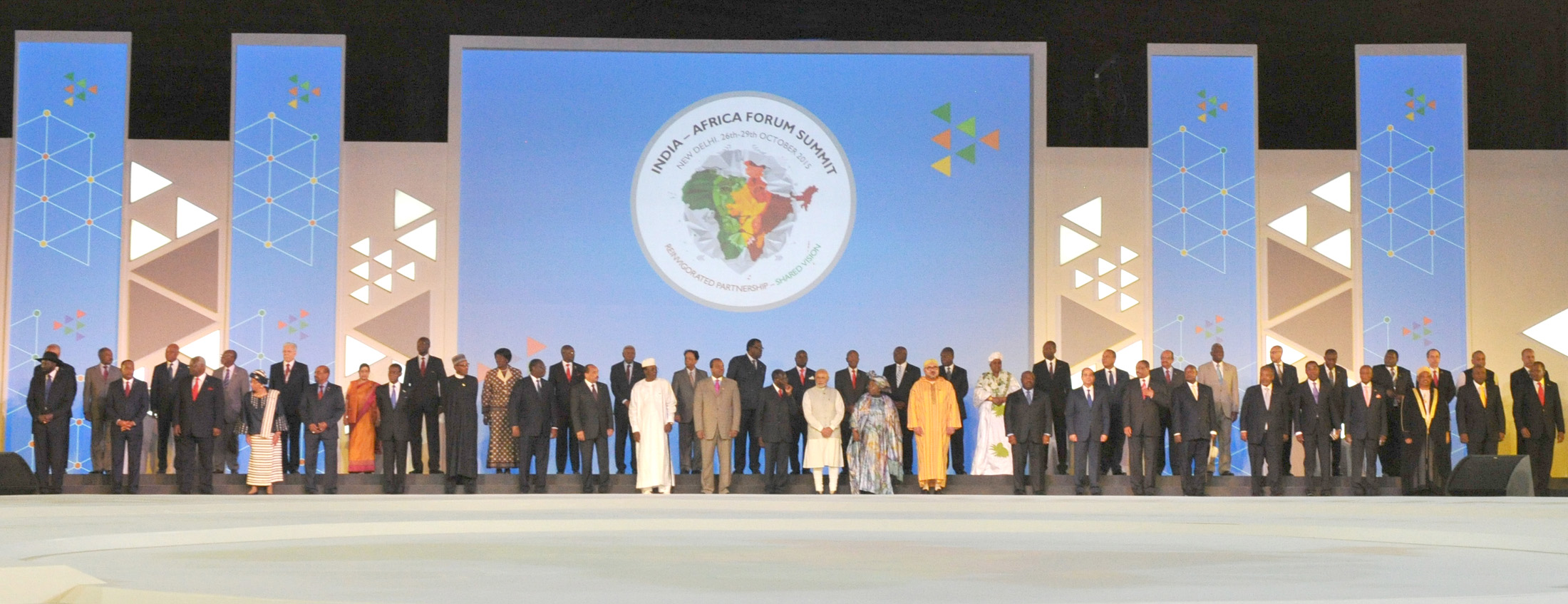
For centuries, India and Africa have shared deep cultural, social, economic and political ties. Many African countries attained independence at the same time as India. Unfortunately, both our societies face common challenges of poverty, low level of education and health. India has always stood in solidarity with its African partners, often looking to lead by example when it came to confronting common developmental challenges.
The growing importance of Africa for India has been reflected by a number of strategic initiatives spanning over decades, especially “Focus Africa” launched by the Government of India in 2002 to boost trade and investment, the India-Africa Forum Summit in 2008 and the notable Asia-Africa Growth Corridor, launched in 2017 as an economic cooperation agreement between the Governments of India, Japan and multiple African countries.
Today, trade between Africa and India has increased more than eight-fold from $ 7.2 bn in 2001 to $ 62.6 bn in 2017-18, making India the third-largest national trading partner of Africa. Trade with India accounted for greater than 6.4% of total African trade in 2017, witnessing a rise from 2.7% in 2001. Investments have also received a fillip in a range of sectors with India becoming the 5th largest investor in Africa with cumulative investments at over $ 54 bn (2008-2016).
Sizeable investments have been made in oil and gas, mining, banking, pharma, textiles and other sectors in African countries. It is pertinent to mention that while India sources nearly 18% of its crude oil and also its LNG requirement, mostly from the West African region, it has consciously made an effort to broaden its investment and trade ambit across the different regions of Africa.
In addition, India has taken the lead in helping Africa overcome the digital handicap and has launched the 2nd phase of the Pan Africa e-Network project – e-VidhyaBharati and e-ArogyaBharati Network Project (E-VBAB), which aims to provide 5 years free tele-education to 4000 students, free medical education to 1000 doctors/nurses/paramedics and free medical consultancy to African countries. On the pharmaceutical front, Africa already receives nearly 20% of Indian pharmaceuticals. India also hosted the first India-Africa Health Sciences Meet in 2015 and many Indian Pharma companies have established units in various parts of Africa, including Ethiopia, Uganda, DRC, Zambia, and Ghana.
On the political level as well, India has intensified its engagement with Africa with more than 20 visits to African countries at the level of President, Vice President, and Prime Minister. India hosted nearly 41 Heads of State/Heads of Government from Africa during the India African Forum Summit in 2015. In that summit, India announced the implementation of a concessional Line of Credit (LOC) of $ 10 bn and $ 600 mn in grant assistance to over 40 African countries.
Significantly, the Duty-Free Tariff Preference (DFTP) scheme announced by India in 2008 for Least Developed Countries (LDCs) benefitted African nations the most and has contributed towards steady increase in trade figures by extending duty-free access to 98.2 % of India’s total tariff lines. Around 38 African countries enjoy the benefits of India’s DFTP scheme.
With this background, there is a pressing need to take India’s relationship with Africa to a whole new level. One cannot ignore the favorable demand-side factors that feature ‘New Africa’ (a growing young population, rising per capita income, and better educational and medical outcomes). However, despite these abovementioned factors, Africa still faces significant infrastructural challenges, with transportation and logistics being the key ones. Added to this is an improved, albeit volatile political climate which somewhat hampers Africa’s ability to portray itself as a viable manufacturing destination.
With the US-China trade war cloud hovering over the global economy, it may well be the right time for ‘New India’ to project itself as a manufacturing destination for Africa. With the significant governmental push for ‘Make in India’, a sharp increase in ease of doing business rankings (77 in 2018 from 100 in 2017), India is poised to emerge as one of the top 5 manufacturing destinations globally. Added to all of the above factors is India’s central location between Africa and Asia which could very well prompt many Chinese and Asian countries to consider shifting their manufacturing lines to India and target the African market. Auto giants like Suzuki, Nissan, and Toyota are already exporting Made in India products to Africa. This may very well lay the foundation for a symbiotic relationship pushing not only the ‘Make in India’ program also propelling growth for the economy of Africa.
- https://www.eximbankindia.in/Assets/Dynamic/PDF/Publication-Resources/SpecialPublications/Deepening-South-South-Collaboration_An-Analysis-of-Africa-and-Indias-Trade-and-Investment.pdf
- https://www.eximbankindia.in/Assets/Dynamic/PDF/Publication-Resources/SpecialPublications/Deepening-South-South-Collaboration_An-Analysis-of-Africa-and-Indias-Trade-and-Investment.pdf
- https://economictimes.indiatimes.com/news/politics-and-nation/indias-partnership-with-africa-is-free-of-conditionalities/articleshow/69568080.cms
- https://economictimes.indiatimes.com/news/politics-and-nation/indias-partnership-with-africa-is-free-of-conditionalities/articleshow/69568080.cms
- https://economictimes.indiatimes.com/news/politics-and-nation/indias-partnership-with-africa-is-free-of-conditionalities/articleshow/69568080.cms





